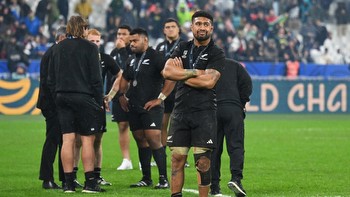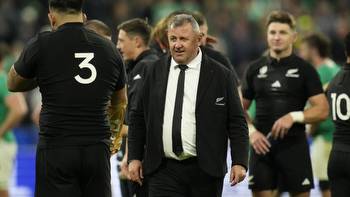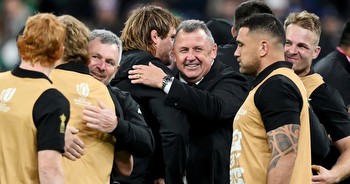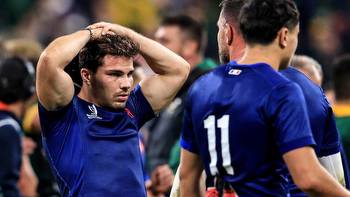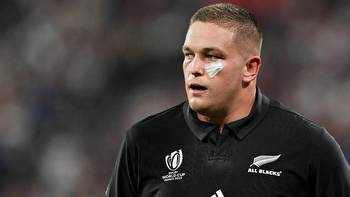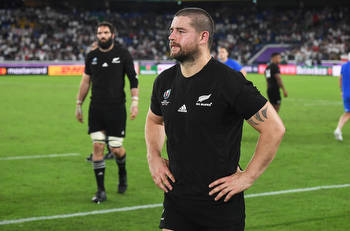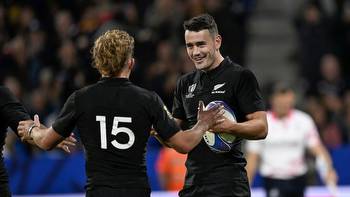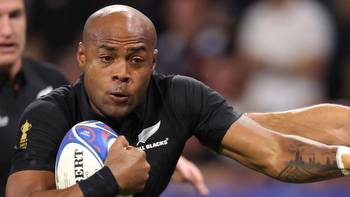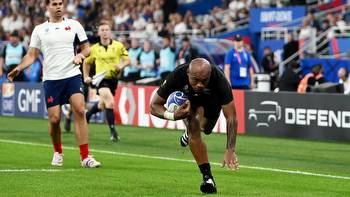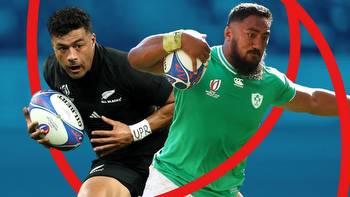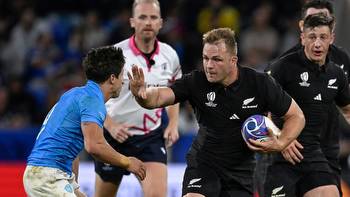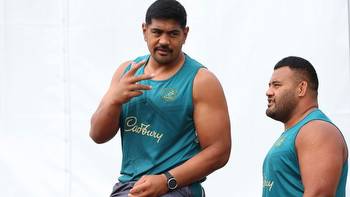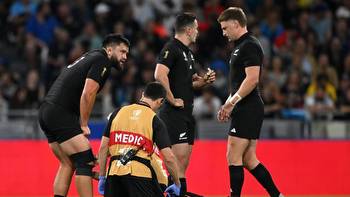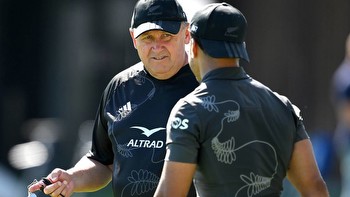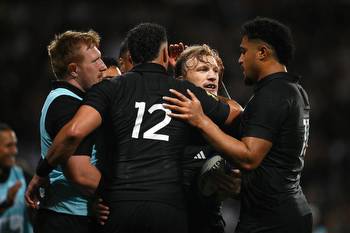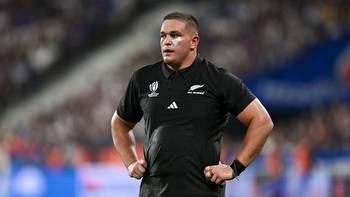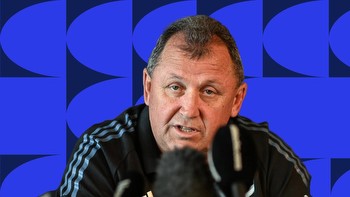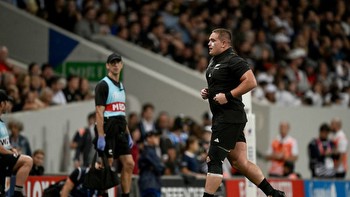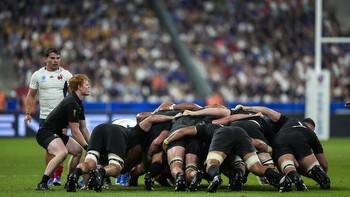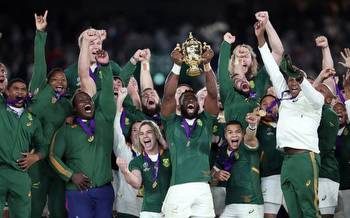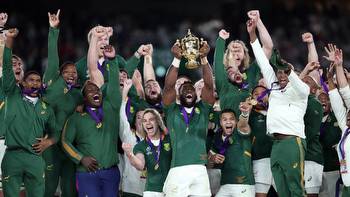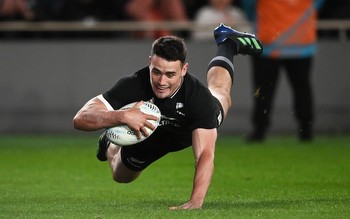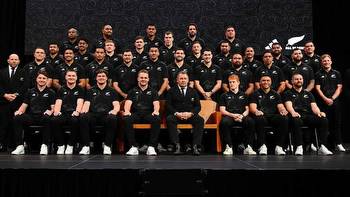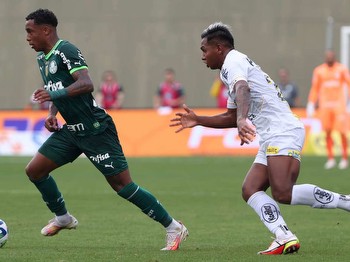Rugby World Cup: Ian Foster backs his revived All Blacks to deliver on the finals stage
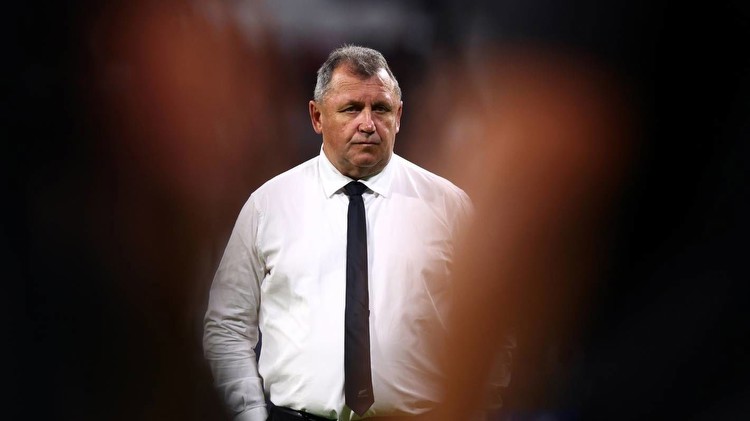
Not even an untimely knee injury to his starting tighthead prop Tyrel Lomax – they are awaiting scans to determine the seriousness of what looks like a medial ligament strain – could quell the enthusiasm of Foster as he contemplated a nine-day buildup for a quarterfinal in Paris that looks odds-on to be against the world’s No 1 side, Ireland, who might just be kryptonite to the All Blacks’ supermen.
It was an upbeat, defiant and decidedly optimistic Foster who spoke to the media in Lyon on Friday (Saturday NZT), little more than 12 hours after his team had walked off OL Stadium having put Uruguay to the sword 73-0 to complete an obliteration of the All Blacks’ Pool A opposition not named France.
Over the three matches since their worrying, and historic, first-up 27-13 loss to France, the New Zealanders have scored 36 tries and won by an aggregate of 240-20 against Namibia, Italy and Uruguay to thunder into the top eight in a flurry of spectacular tries and breathtaking skills. And turnstile tackling.
The only question many are asking – but seemingly not the All Blacks – is what guide, if any, is that to the chances of the three-time champions who quite simply have not been taken anywhere near an uncomfortable zone since they walked off the field at Stade de France having been ground into the turf by a dominant French outfit. (And that followed a record test defeat to South Africa just a fortnight previous.)
First things first. There was no news on Lomax, other than to say it “looks like a medial, but not overly significant”. In terms of any decision on a replacement (Joe Moody, who has handy form in this space, has been mentioned as one possibility), the coach added, “we’ll cross that bridge when it comes”.
Foster confirmed no plans had been initiated, for one simple reason: “We’ll take our time and make sure we’ve got all the information. If you jump in early (with a replacement) you can’t get that player back. That’s very much on our mind. We’ll use the next 48 hours to assess that. If it’s not a significant injury but kept Tyrel out for a game, we might be loath to make that replacement”.
Time, says, Foster is the All Blacks’ friend at the moment, as they take a couple of days to recover and revive ahead of a big week. “We’ve got to use these next few days as an advantage (Ireland meet Scotland on Sunday morning NZT to decide Pool B). Mentally we charge up, get ready to go, and enjoy watching other teams play.”
The coach, of course, is no stranger to this situation. He was an assistant in 2015 and ‘19 when the All Blacks coped in contrasting fashion on the knockout tightrope.
“It’s about treasuring each day and knowing this is what we’ve worked for, this is the preparation we’ve put in to get us to this point, and make sure each day we get what we need done at a really high level,” he said.
“It’s a phase of the tournament we love. We love these big occasions. There is no tomorrow. It’s a great time to narrow down the focus and keep it simple. Everyone hopes they can go well in the playoffs – we know we can. We’ve got to rely on that.”
Clearly a massive step up in intensity, resistance and pressure is coming, as well as a style of game that’s set to be chalk and cheese from what played out in Lyon and Toulouse. Turns out Foster’s not overly concerned by that.
“Not all playoff rugby is like that,” he shrugs. “Some teams want to make it like that and if they’re good enough to put you into that position, then you have to adapt. But we don’t want to shut down our DNA just because that’s what people are saying it’s likely to be.
“The last two quarterfinals I’ve had at World Cups have been the complete opposite. We’ve got to control what we can control, get excited about playing the game we want to play and if we have to adapt, we’ve got to be good enough to do that. History shows that’s where the gold is.
“If you can’t get your own game going, it’s how do you adapt to the one you’re allowed to play and rebuild momentum, so you get back to doing what you want to do.”
Clearly what is coming is a clash of styles. If it’s Ireland – and it surely is – then it will be whether the world’s No 1 side can play its game, which will be about collisions, directness, ball-retention, power and accuracy. It will be about squeezing at set piece, and with the rush defence, applying pressure and denying the New Zealanders the pace and space they thrive on.
They’re no strangers to the formula, having won three of the last four against the All Blacks, and four of the last six. Most recently, little more than a year ago, they toppled them in a series in New Zealand from one down with a magnificent display of precision rugby.
Foster accepts it will all be decidedly difficult from here on in. But then he puffs out his chest and exhales.
“Only one All Blacks team has done this away from home in the last seven away World Cups. That tells you how hard it is. We know the size of this challenge.
“You can call it the quarterfinal, but really it’s the final. It’s winner take all this weekend. That’s our mindset.”
